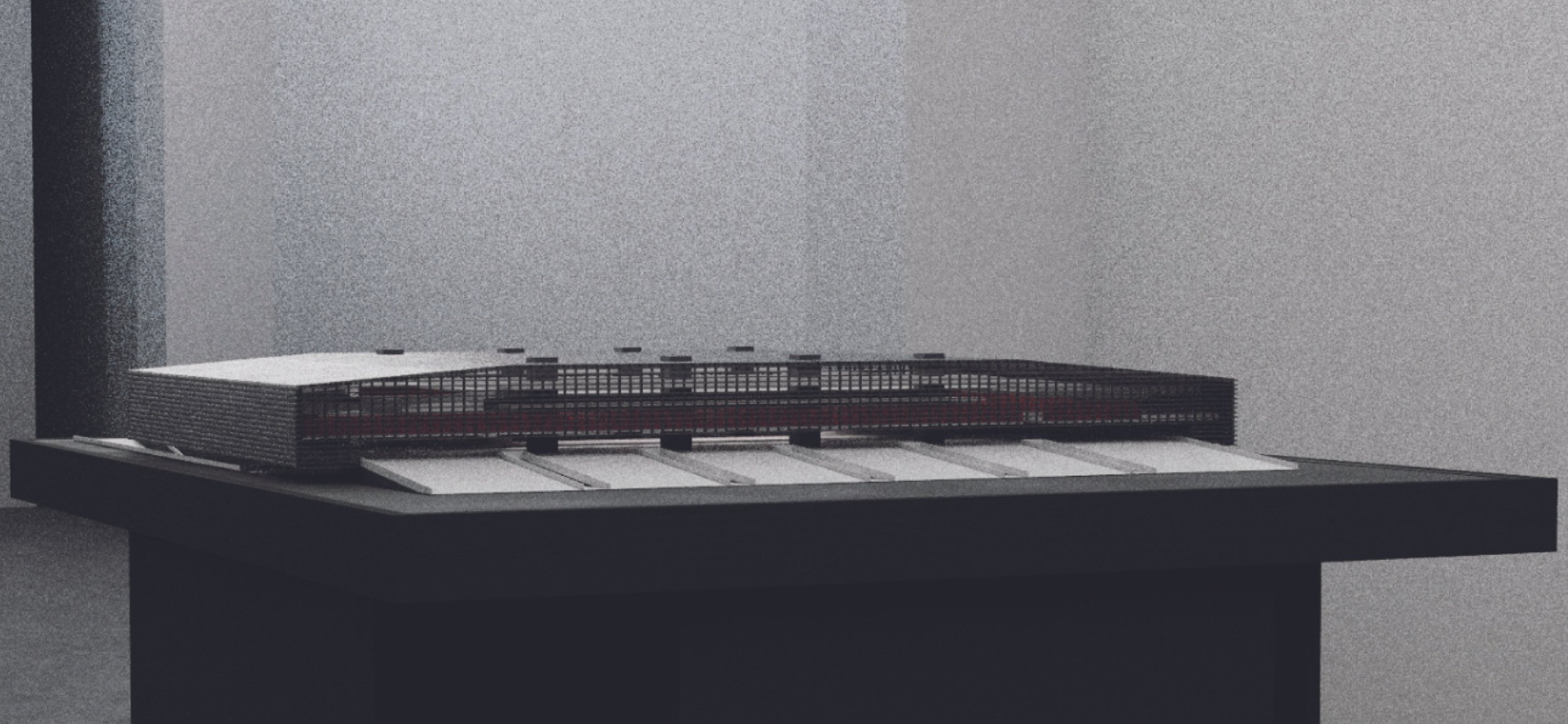Mo Goldberg
This thesis scrutinizes the way much of civic architecture interacts with the citizens it is meant to be serving. This comes as a result of civic architecture, especially projects in which elected officials hold office often seem to serve as fortresses. Fortresses that insulate public processes and isolate officials from their constituents thus providing them with a layer of privacy that’s presence should be questioned. This is explored through two points of view in parallel. The first approaches the issue through the idealistic lens of a ‘panoptic reversal’ in which the central power has now fallen under observation from all angles and those who make decisions are under the purview of the people those decisions affect. At the same time the second approach takes place. This second point of view flips the equation once more placing the citizens back under observation as it is of the belief that government would never relinquish a power unless it knew it had one that supersedes the one that they are willing to let go. This plays out over and over through the project endlessly flipping the equation making it unclear who in the end is truly under observation and where the power really lies.



